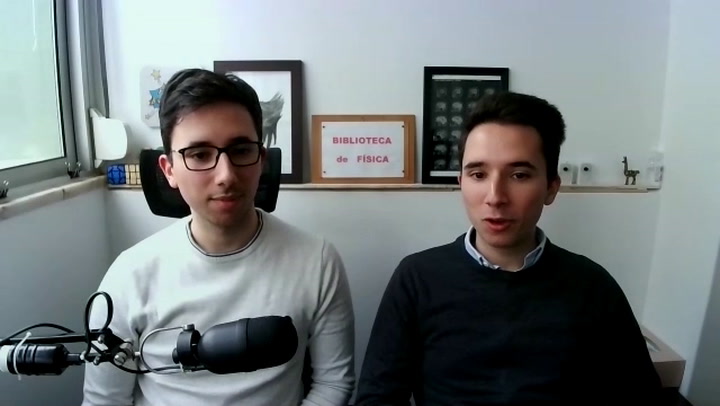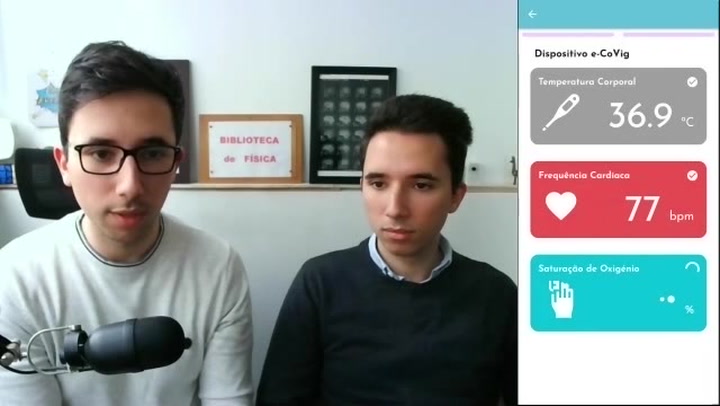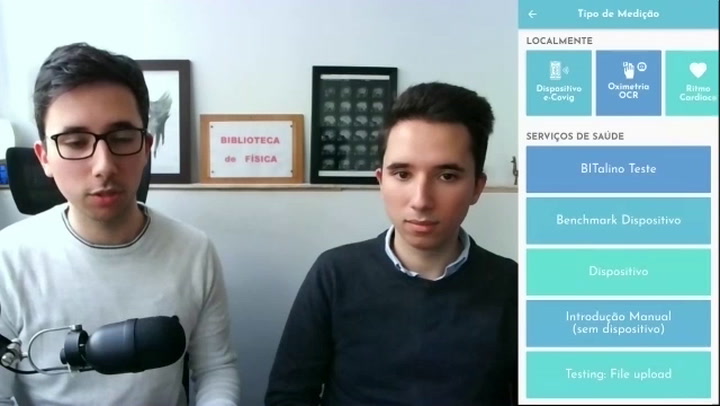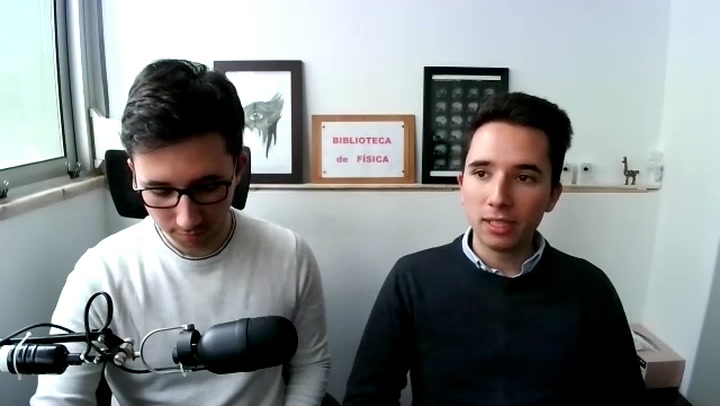From creating gadgets to fighting a pandemic
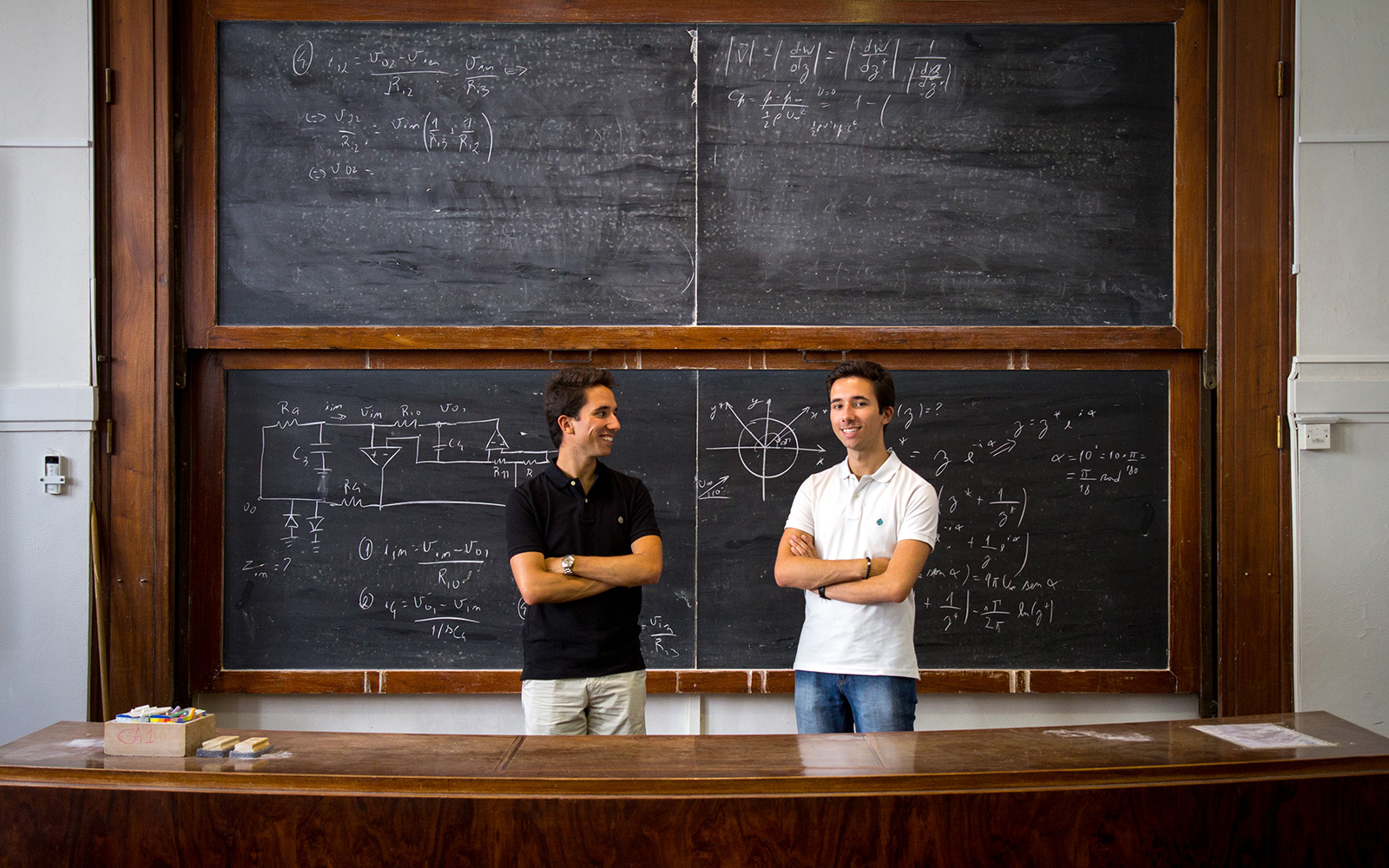
The Raposo twins just finished their master’s degree at Instituto Superior Técnico – Afonso’s final mark was a 20 in Biomedical Engineering, his brother Gonçalo finished Aerospace Engineering with 19. Both had been receiving the Gulbenkian Mais scholarship since 2015.
They talked with us over Zoom from the new house they are sharing in Lisbon and we got to know the projects they have for their PhD’s, but also their plans for the future.
Afonso and Gonçalo tell us everything about the past three years, from the projects they developed during their master’s to their new house in Lisbon.
An app to fight Covid-19
“Actually, the story behind my thesis is kind of interesting”, says Afonso. Initially, back in January 2020, it had to do with processing videos from carotid ultrasound exams to help the diagnosis of the diseases linked with this artery. With age and with increasing cholesterol, “many people develop atherosclerotic plaque, which can lead to heart conditions, strokes, etc”.
In March, after the pandemic hit, other pressing issues and concerns arose and his tutor invited him to work on an app to help the fight against Covid-19. The goal of the project, which was supported by Fundação para a Ciência e a Tecnologia (FCT), was to create an app that could make monitoring physiological symptoms easier in the case of patients in isolation due to the virus, a process which is currently done via phone call.
Get to know the many features of the e-CoVig app, that Afonso helped developing
This was how e-CoVig was born: “an app that allows patients to take initiative and monitor their own symptoms by filling out forms and monitoring vital signs”. This app can be used by people who are in isolation in their own homes, but it is also ready to be used in hospitals or nursing homes.
All the information gathered by the app is shared in real time with an online platform to which the doctors and nurses responsible for the patients have access. They are also notified if there is any aggravation of their patients’ symptoms.
During his thesis, one of the themes Afonso studied in depth was the measuring of vital signs using a smartphone. He is now applying for the patent of his greatest discovery: the method that allows to measure oxygen saturation using only a camera from a phone. This and other functionalities of telemedicine will be the main focus of his investigation throughout his PhD.
In this video, Afonso shows us how to perform an electrocardiogram at home using only two sensors and a phone.
From deep learning to chatbots
Gonçalo’s thesis “was not as practical” as Afonso’s, but it also covered a highly topical subject. While working with artificial intelligence (AI), his main focus was deep learning, “which is a trend at the moment and uses artificial neural networks with a structure similar to the human brain” to train computers to perform tasks in the same way humans do.
The deep learning models that are being created at the moment – and used across different fields like speech and image recognition, but also pattern recognition and prediction – are becoming more complex and expensive both in terms of financial and energetic costs. His work consisted in studying a faster and more efficient method to implement these models.
In June, Gonçalo will have his first experience “in the world of scientific articles” by presenting his first paper in an international conference – International Conference on Acoustics, Speech, & Signal Processing.
Gonçalo Raposo talks about “leaving the nest” to live with his brothers and explains the project he has for his PhD.
His PhD is financed by INESC-ID and intends to contribute to the development of AI’s response in chatbots, the programs that are used on several websites and which are capable of maintaining a conversation with a human user – as in customer support, for instance.
A family journey
The first time we spoke with the Raposo twins was in 2018, when they were still on the fourth year of their studies at Instituto Superior Técnico. Since then, they both did an Erasmus and spent a semester abroad in Italy (Turin and Milan) where they lived on their own. Three years later, they are ready to face new challenges, their PhD’s, and they have even more projects for the future.
In 2018, the Raposo twins were doing their fourth year at Instituto Superior Técnico
Now that they have finished their master’s, their time Gulbenkian Mais grantees is over, but the twins’ bond with the Calouste Gulbenkian Foundation remains intact. “We are completely at the Foundation’s disposal to repay for all the help it has given us” says Afonso.
This is the end of a journey and the start of another: their sister Leonor, who is doing her first year at FLUL, studying Culture and Communication, has also received the Gulbenkian Mais scholarship. Around here, we look forward to the next chapters.

